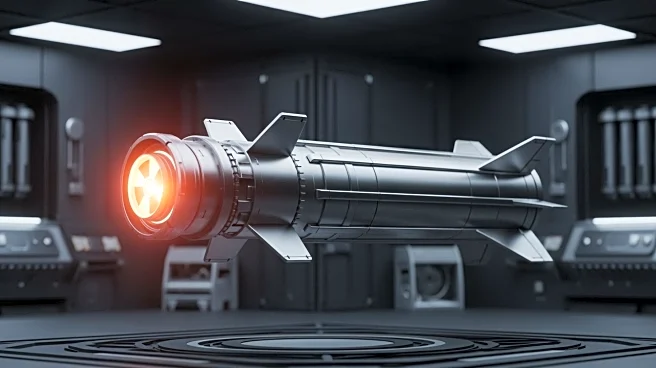What's Happening?
Russia has announced the successful test of its nuclear-powered Burevestnik cruise missile, claiming it covered a distance of 14,000 km during a 15-hour flight. The missile, first revealed in 2018, is touted
for its potentially unlimited range and ability to evade missile defenses. Chief of General Staff Valery Gerasimov reported the test results to President Vladimir Putin, highlighting the missile's maneuverability and strategic capabilities. Despite previous skepticism from Western experts regarding its viability, Russia continues to develop this experimental weapon, which is powered by a nuclear reactor activated after launch.
Why It's Important?
The test of the Burevestnik missile represents a significant development in global military dynamics, potentially altering strategic balances. If successful, the missile could provide Russia with a unique intercontinental weapon, challenging existing defense systems and prompting international security concerns. The advancement of such technology may lead to increased tensions and an arms race, as other nations seek to counter or match Russia's capabilities. The implications for U.S. defense policy and international relations are profound, as this development may necessitate adjustments in military strategy and diplomatic engagements.
Beyond the Headlines
The pursuit of nuclear-powered missile technology raises ethical and environmental concerns, given the potential risks associated with nuclear propulsion. The development also highlights the ongoing challenges in arms control and non-proliferation efforts, as nations continue to innovate in military technology. The geopolitical ramifications of such advancements could lead to shifts in alliances and power structures, influencing global stability.









